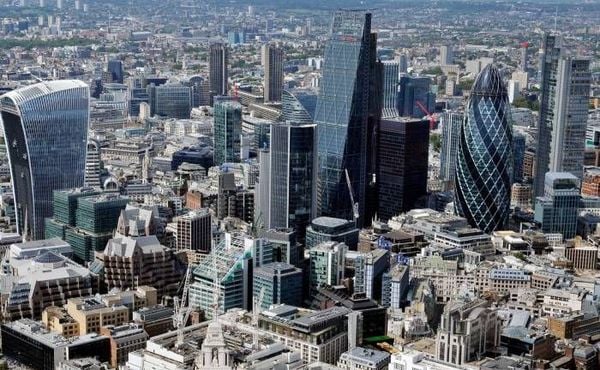Sustainable finance set to become the 'New Normal' of the financial world
EDHEC Business School Professor of Finance Gianfranco Gianfrate is a leading expert in Climate Change Finance. He answers our questions on the latest trends in sustainable finance and on EDHEC’s involvement in the Global Research Alliance for Sustainable Finance and Investment (GRAFSI).
EDHEC IS A MEMBER OF GRAFSI. WHAT DOES THAT INVOLVE?
GRAFSI is an ambitious initiative. Established by Oxford University, it is a global network of more than 20 high-level universities and business schools, aimed at promoting high-quality research and teaching on topics related to sustainable finance and responsible investment. EDHEC recently became a member, alongside the likes of Imperial College, Stanford, and Tsinghua. GRAFSI works with other leading universities to promote research on sustainable finance and to organize events and conferences. It also wants to raise the quality of teaching. For example, we share our curricula on sustainable finance and responsible investment with the other alliance members, and vice versa, so we can all become more effective at teaching these topics. We try to learn from each other and to bolster each other’s skills, as sustainable finance is still a relatively new topic and there is a need for more research, data, and scientific evidence. We need to build a body of advanced knowledge, as the younger generation is very aware of this issue and there is real demand for better teaching.

THERE IS GROWING INTEREST IN THE TOPIC OF SUSTAINABLE FINANCE. HOW ARE COMPANIES DEALING WITH IT?
In stark contrast to five years ago, sustainability and climate-change risks are very high on the corporate agenda these days. It has become a priority for chief executives. Yet, there is also a lot of opportunistic behaviour and greenwashing going on, both by companies and investors. Sustainability is very difficult to measure; there are too many inconsistent metrics, and sustainability data are generally self-reported and unaudited, leaving a lot of room for manipulation and misrepresentation. And therein lies the paradox: sustainability is way up there on the corporate agenda, but greenwashing is becoming more and more widespread.
Companies are talking the talk, but not walking the walk. The younger generation can change that. For example, when it comes to financial services, we’re seeing that it is younger customers who are demanding sustainable financial products. This will have a knock-on effect on the corporate world, because the new generation of managers and corporate leaders will also have sustainability ingrained in their core values. They are going to lead the transformation internally. That's what EDHEC is trying to do by emphasising and integrating sustainability, not only in specialised sustainable finance courses but throughout the curriculum. Students are demanding more skills and tools and they are the ones who are going to become the champions of this brave new world of corporate sustainability.
WHAT ARE THE LATEST TRENDS IN SUSTAINABLE FINANCE?
Because of the Paris Agreement and the current changes in weather and ecosystems globally, there has been greater focus on climate and environmental issues. Right now, there is increasing attention on the social element (the ‘S’ in ESG), especially in light of the COVID-19 pandemic. Those companies that have best dealt with the social dimension (treating their employees with consideration) have proved the most resilient financially.
Lastly, there has been a lot of focus on company shares and stock-market performance. There is a kind of slow and silent revolution underway. Banks and central banks are taking climate issues more seriously. If banks start to incorporate climate risk exposure into the corporate lending process, for instance, the implications will be huge. President Christine Lagarde has said the European Central Bank will integrate climate considerations into the way central banks carry out their purchase programmes, so when they buy securities, they're going to look at the environmental profile of the issuer. This is potentially highly disruptive for the financial world.
SO, SUSTAINABILITY IS THE FUTURE OF FINANCE?
Yes, in a few years, sustainable finance will be the standard, the new financial normal.
Photo credit: Noah Buscher/Unsplash

Commentaires0
Veuillez vous connecter pour lire ou ajouter un commentaire
Articles suggérés



